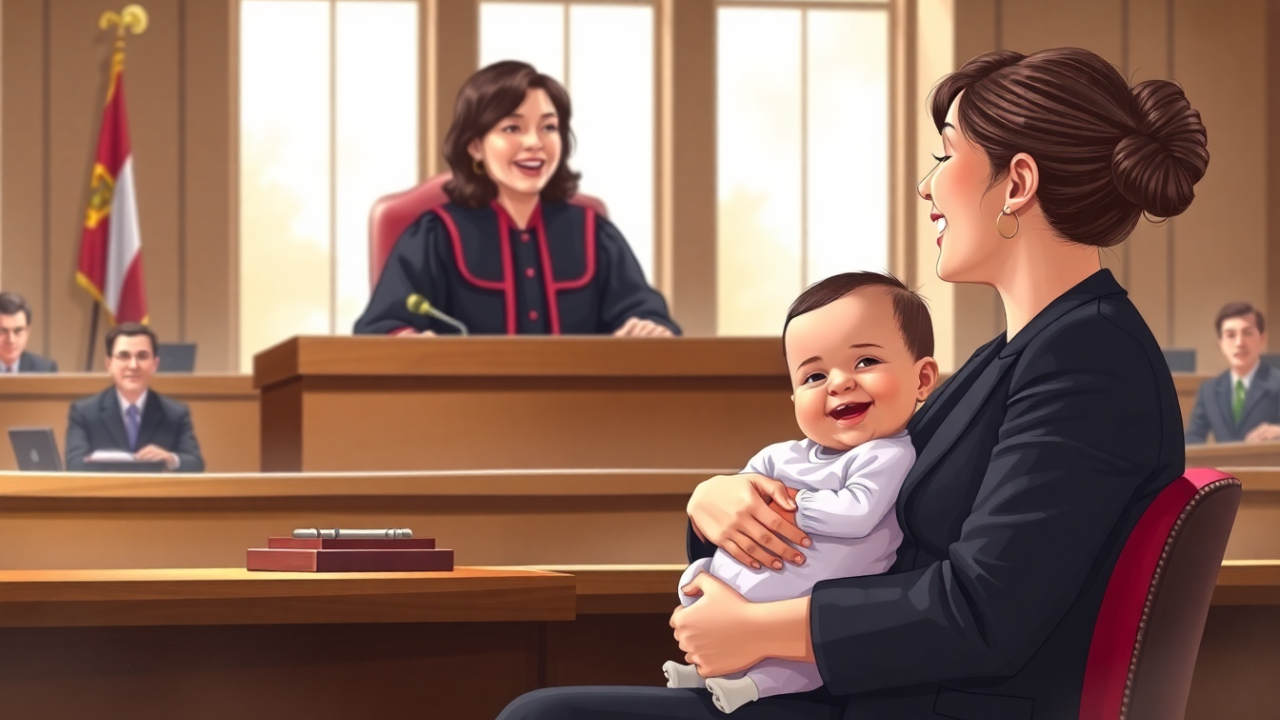Spanish Court Grants Single Mother Double Parental Leave in Landmark Ruling!
In a groundbreaking decision that's sending ripples across Spain and beyond, a single mother has won a legal battle for double parental leave. This isn't just another court case; it's a monumental victory for single parents and a significant step towards gender equality. Get ready to be amazed as we delve into the details of this inspiring legal triumph!
The Fight for Parental Leave Equality
The case began in Murcia, southeastern Spain, when a single mother requested 16 additional weeks of parental leave on top of the standard 16 weeks already allotted to her. Her plea stemmed from the undeniable fact that she, as a sole caregiver, shoulders the responsibilities that would typically be shared between two parents in a two-parent family. This additional parental leave, she argued, would help her properly care for her child and would grant the child access to additional care. This is where she was met with adversity. Social services in the region denied her request. But this mother wouldn’t be deterred. With the support of her lawyer, she made her way through the court system, which was then resolved favorably by the high court.
The High Court's Historic Decision
The Murcia High Court of Justice issued a ground-breaking decision stating the mother is entitled to 32 weeks of parental leave in total! The ruling not only addressed the mother's specific circumstances but set a significant legal precedent by upholding that single parents' needs are no different than two-parent households. They found that single mothers in such circumstances require more parental leave to successfully care for their child.
Dismantling Systemic Inequality: Why This Matters
This isn't just about one mother's victory. The ruling tackles the long-standing systemic issue of discrimination faced by single-parent families in the access and distribution of resources needed to properly raise children. Studies consistently highlight that children in single-parent homes experience elevated risks of poverty and other related social issues; the additional leave granted would allow them access to more time and additional caregiving in their young age to counteract some of the disparities that single parent homes can experience.
The Constitutional Court's Influence
The ruling heavily relied on a previous decision by Spain's Constitutional Court which banned discrimination against children in single-parent families. This ruling further reinforced the importance of ensuring that all children, regardless of their family structure, enjoy equal rights and support.
The Path Ahead: A Catalyst for Change
While this legal win is a momentous occasion for parental leave advocates, the journey doesn't end here. Though the ruling only affected a singular case, the precedent has the potential to dramatically improve parental leave policies, helping families who require a longer period of care for their children. Moreover, the judgment could serve as an inspiration for single parents around the world who are still in the fight for equal access to benefits. Though this woman will not benefit from the parental leave immediately, her victory marks a historic decision that can help benefit parents in single-family homes for the future. The precedent set has been lauded by parents advocacy groups in other countries as an inspiration for change.
A Call for Systemic Change
The Spanish court's decision serves as a beacon of hope, illuminating the critical need for updated legislation concerning parental leave. This landmark case has laid the groundwork for better societal recognition of single-parent families and the support they require. It calls for a broader evaluation of family structures and demonstrates an urgency in providing tailored parental care resources and benefits to better address disparities in access.
Take Away Points
- A Spanish court granted a single mother double parental leave, effectively doubling the available amount of time for childcare after birth.
- The decision is based on a previous constitutional court ruling, aiming to address inequalities faced by children in single-parent households.
- The victory will hopefully inspire greater adjustments to national and international parental leave laws to grant additional leave to parents in single parent households.
- This case raises awareness to the specific need and care that single-parent homes may need to provide optimal childcare conditions.




